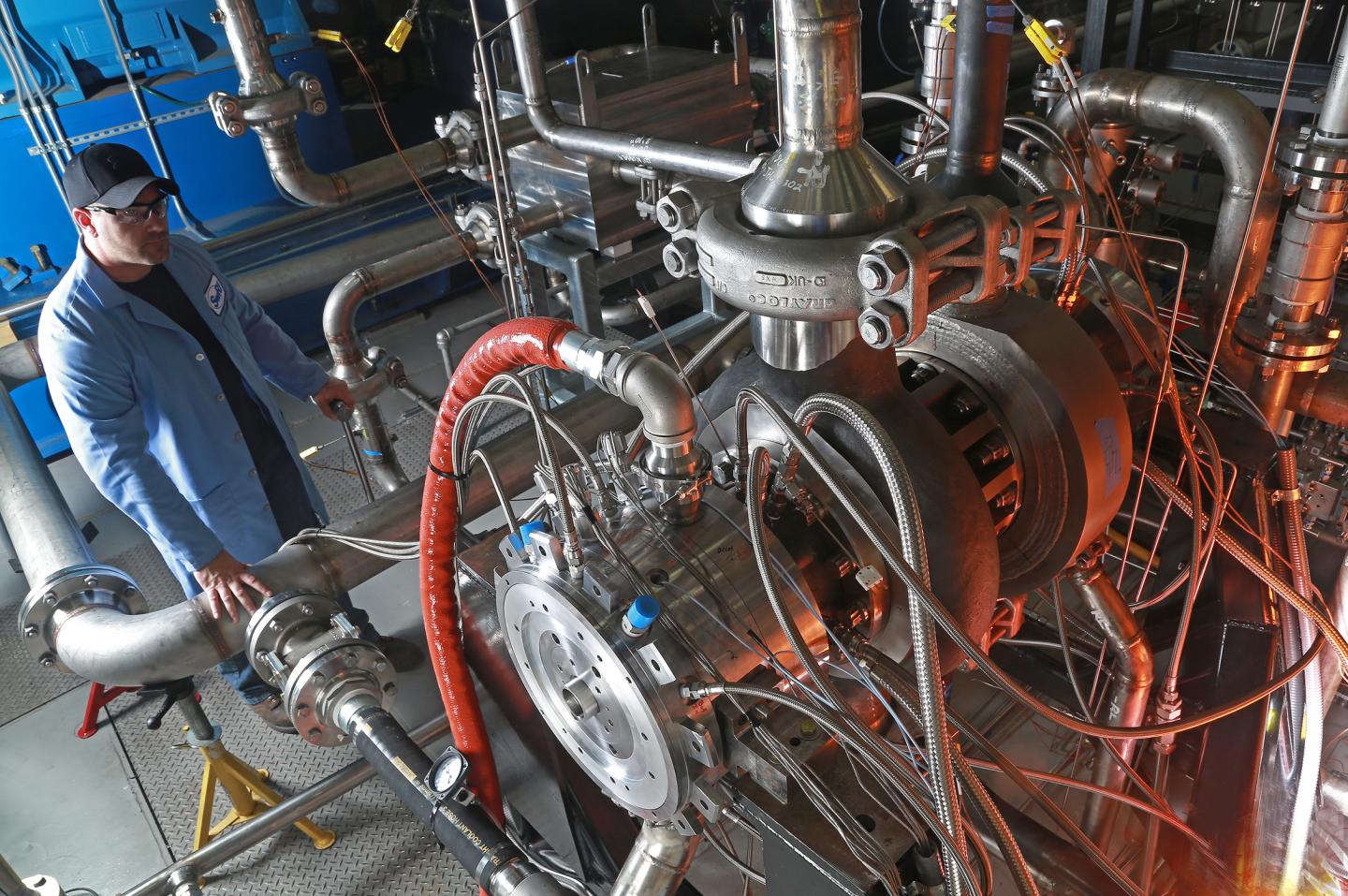Two early-stage research projects will advance solar power technologies

Credit: Courtesy of Southwest Research Institute
SAN ANTONIO — April 1, 2019 — Southwest Research Institute has been selected to receive two awards from the U.S. Department of Energy Solar Energy Technologies Office (SETO) to advance concentrating solar-thermal power (CSP) research and development. Both projects will support CSP power cycles that use supercritical carbon dioxide (sCO2) as the working fluid, which has the potential to yield higher thermal efficiencies at a lower cost than steam.
For the first project, valued at $1.5 million, SwRI will collaborate with Vacuum Process Engineering to develop and test a compact dry-cooling heat exchanger for sCO2 power cycles. Dry cooling reduces the water used by power plants but can also reduce the thermal-to-electric conversion efficiency of the power cycle. The SwRI design will efficiently exchange heat between sCO2 and ambient air to conserve water while optimizing the system for peak power cycle performance.
“We’ll also test the performance and reliability of the dry cooling system within a MW-scale sCO2 test loop,” said Dr. Tim Allison, manager of the Rotating Machinery Dynamics Section of the Mechanical Engineering Division. “This concept could reduce the cooler cost from $168 per kilowatt to $95 per kW and reduce cooling power consumption in CSP plants by 14 percent.”
For the second project, valued at $2 million, SwRI will team with EagleBurgmann to develop a high-temperature dry-gas seal for sCO2 power cycle turbomachinery. CSP plants with sCO2 power cycles use mechanical seals to prevent fluid leaks. The increased temperatures and pressures of sCO2 power cycles, however, require novel materials to reach the targeted thermal-to-electric power conversion efficiency of 50 percent.
“By replacing the temperature-sensitive elements with more durable components, the new seals will be able to reach temperatures over 500 degrees C and reach higher efficiencies,” said Dr. Jason Wilkes, SwRI senior research engineer. “This design will also be smaller, which reduces the complexity of the sCO2 turbine design and improves reliability and turbine efficiency.”
“Including these projects, SwRI has supported more than two dozen DOE-funded projects designed to advance sCO2 technology for CSP plants,” said Danny Deffenbaugh, vice president of the Mechanical Engineering Division. “These are the technology building blocks for sCO2 power cycles. We’re eager to see their adoption at some point in the future.”
In 2018, SwRI broke ground on the Supercritical Transformational Electric Power (STEP) pilot plant being built in collaboration with Gas Technology Institute, GE Global Research and the DOE National Energy Technology Laboratory. This first-of-its-kind 10-megawatt sCO2 facility will demonstrate next generation higher-efficiency, lower-cost electric power technology.
SwRI was selected for the new projects as a part of the Energy Department’s effort to invest in research to lower solar electricity costs and support a growing solar energy workforce. SwRI’s awards are two of several CSP projects to develop materials and designs for collectors, power cycles and thermal transport systems that can withstand high temperatures and resist corrosion.
For more information, visit https:/
###
Media Contact
Maria Stothoff
[email protected]
Original Source
https:/




